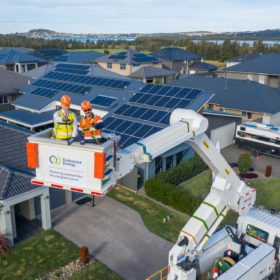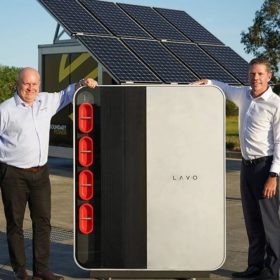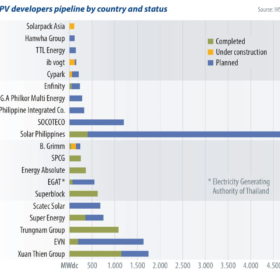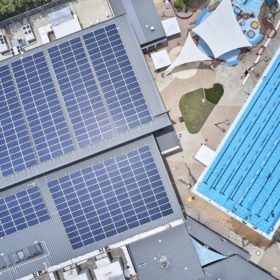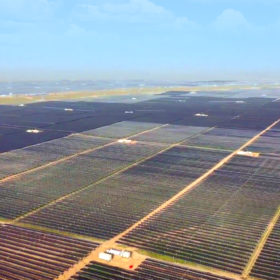Laying foundations for transformation: Queensland startup answers need for grid digitalisation
Patrick Matweew, CEO of Australian startup Luceo Energy, is fully aware grid digitalisation stirs fervour in the hearts of few. It is, nonetheless, perhaps the single most important step in realising our clean energy future. “It’s not spoken about enough because it sits in that little niche. There might be other things that are a little bit more sexy, but this is really where the fundamentals get put in place to enable [everything else],” he told pv magazine Australia.
Battery-maker, retailer and financier alliance sees more players enter Australia’s VPP space
South Korean company LG Energy Solution has partnered with Australian fintech financier Humm Group and renewable energy retailer Diamond Energy to provide customers with Virtual Power Plant platform. Virtual power plants (VPPs) are gaining momentum in Australia as a way to decrease buyback time on home batteries and potentially add stabilisation services to the grid.
AEMO’s 2021 IASR sets new scenarios and ambitions for Australia’s solar industry
Solar PV is an important contributor to all energy scenarios presented in AEMO’s latest “Input, Assumptions and Scenarios Report,” but what’s the best possible outcome it can enable?
Saturday read: In conversation with UNSW’s Anna Bruce on distributed transformation
The time is now for the energy consumer, says Anna Bruce, as energy “prosumers” produce, consume, and provide electricity and grid services in previously unimagined ways. Bruce, a senior lecturer at the University of New South Wales’ School of Solar Photovoltaic and Renewable Energy Engineering (SPREE), leads work on the role of distributed energy resources in the energy transition, analysing firsthand the dizzying level of complexity it brings.
Partnership to explore hydrogen technology in standalone systems
Standalone power system specialist Boundary Power has teamed up with Australian hydrogen technology company LAVO to investigate the potential application of its renewable hydrogen energy storage system in power solutions suitable for off-grid and edge-of-grid customers.
Queensland energy survey reveals shifts in battery and EV embrace coupled with continued love of solar
Households with residential batteries have doubled in Queensland in the last two years, though cost remains a barrier – as it has with electric vehicles. As prices fall, however, the state is likely to welcome the technology with open arms, as it has with solar. 37% of Queensland households now harvest the sun’s energy and a further 22% looking to install or upgrade their systems, according to the government’s Queensland Household Energy Survey. Of those with solar systems, 93% would would replace their panels with the same size or larger, if they were to fail.
RACV Solar adds another installation company to its stable
Victorian solar company RACV Solar has continued its expansion strategy with the acquisition of Great Ocean Solar and Electrical, a solar and battery installation business based on the Bellarine Peninsula in the state’s southwest.
Saturday read: Southeast Asia’s big PV plans – 27 GW by 2025
PV markets in Southeast Asia have picked up over the past two years, driven by the astounding growth of Vietnam. Regional policies, combined with growing demand for renewable power in the manufacturing industry, will result in 27 GW of new PV installations across the region over the next five years, writes IHS Markit analyst Dharmendra Kumar. PV installations in these countries are driven by attractive feed-in tariffs, net energy metering, tariff-based auction mechanisms, and other incentives.
Conservative strongholds now showing strong support for clean energy, survey finds
More than half of regional Queenslanders believe clean energy industries will be major employers by 2030, according to a new survey, while just shy of half support transitioning to a renewables-dominated grid in the next 15 years or sooner. The survey focussed only on regional Queensland, excluding greater Brisbane area and Gold Coast, an area renowned for conservatism.
China added 13 GW of solar to the end of June
The volume of new PV generation capacity added in the first half was higher than expected, given the rising input costs seen in recent months, but solar was nevertheless outpaced by new wind farms in the first six months of 2021.



